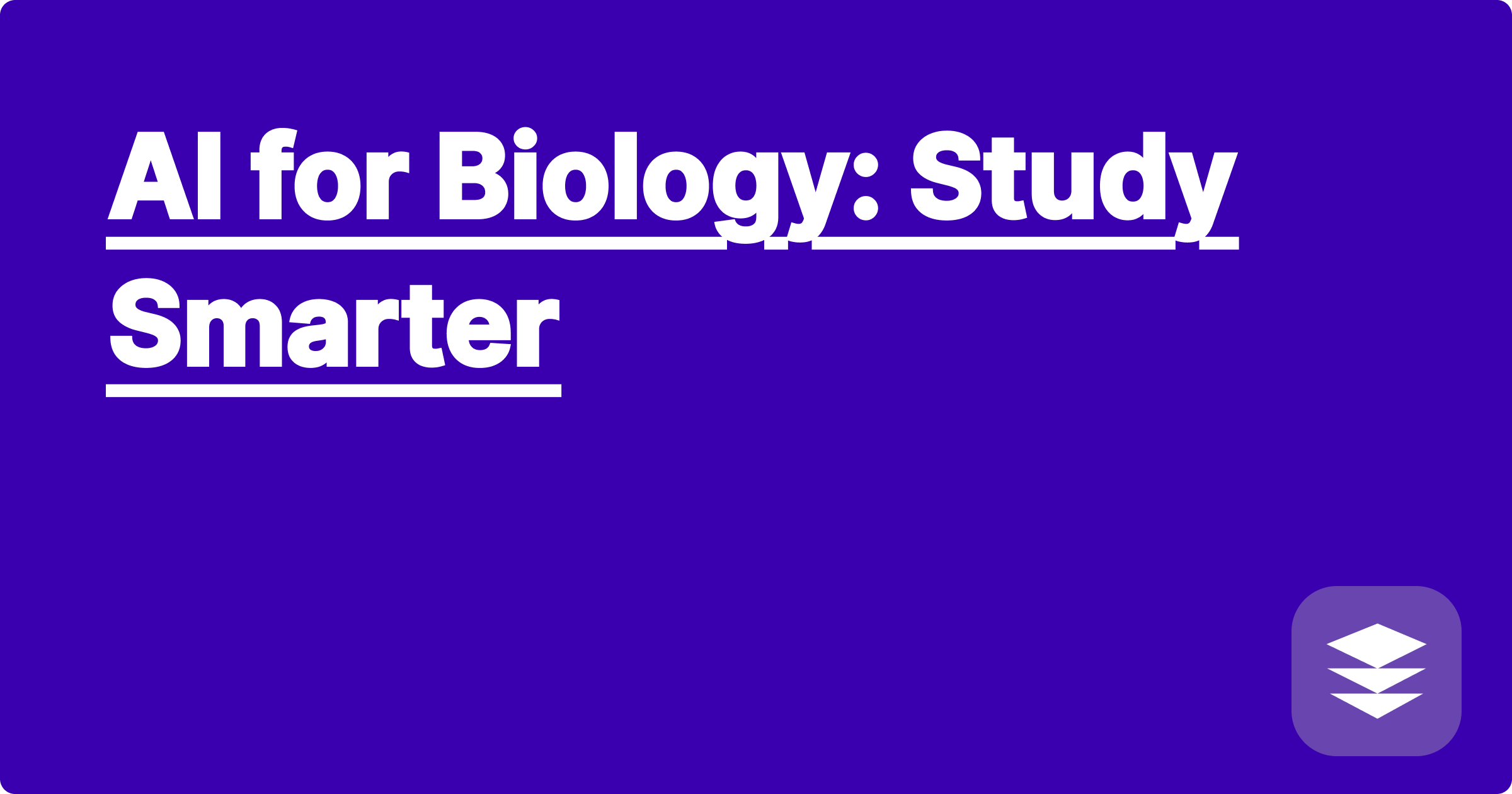
The world of STEM, especially biology, is exploding with information. Keeping up with the latest discoveries, complex pathways, and intricate biological systems can feel overwhelming, even for the most dedicated students and researchers. Traditional study methods often fall short, leaving students drowning in textbooks and researchers struggling to connect disparate data points. But imagine a world where you could personalize your learning, access complex data visualizations in seconds, and even predict potential research outcomes before stepping into the lab. This isn't science fiction – it's the power of AI applied to biological studies and research.
This blog post is your guide to leveraging AI tools to achieve a quantum leap in your biology studies and research. Whether you're a high-achieving undergraduate aiming for a top-tier graduate program or a PhD candidate navigating the complexities of your dissertation, AI can be your secret weapon. We'll explore practical applications of Generative Pre-trained AI (GPAI) tools, share real-world examples of their impact, and equip you with the strategies to integrate AI seamlessly into your workflow, ultimately boosting your efficiency and accelerating your progress. Think of this as your personal AI cheat sheet for conquering the world of biology.
Biology, by its very nature, presents unique challenges to learners and researchers. The sheer volume of information, ranging from molecular mechanisms to ecosystem dynamics, can be daunting. Furthermore, biological systems are incredibly complex, with intricate interactions and feedback loops that are often difficult to visualize and comprehend. Traditional learning methods, such as memorizing facts and figures, are often insufficient for grasping these complexities. Researchers, too, face significant hurdles. Analyzing large datasets, identifying meaningful patterns, and formulating testable hypotheses can be time-consuming and resource-intensive. This is where AI steps in, offering a powerful set of tools to navigate these challenges and unlock new possibilities.
AI, specifically GPAI tools, offers a transformative approach to studying and researching biology. Imagine having a virtual research assistant that can summarize complex research papers, generate practice questions tailored to your learning style, and even help you design experiments. Tools like ChatGPT and Claude can be used to break down complex biological concepts into easily digestible chunks. You can ask them to explain a metabolic pathway, compare different cell types, or even generate summaries of landmark research papers. Wolfram Alpha excels at providing computational support, allowing you to quickly access biological data, perform statistical analyses, and visualize complex structures. These AI tools can act as powerful “STEM AI tools” providing “AI 꿀팁” that can significantly enhance your “공부 효율 향상.”
Integrating AI into your workflow is simpler than you might think. Start by identifying your specific needs. Are you struggling with understanding a particular concept? Do you need help analyzing a large dataset? Once you've pinpointed your challenge, choose the appropriate AI tool. For conceptual understanding and summarizing information, ChatGPT or Claude are excellent choices. For data analysis and visualization, Wolfram Alpha is a powerful option. Next, formulate clear and specific prompts. Instead of asking a general question like "Tell me about DNA," try something more specific like "Explain the role of DNA polymerase in DNA replication." The more precise your prompt, the more accurate and helpful the AI's response will be. Finally, critically evaluate the information provided by the AI. Remember that these tools are still under development and may occasionally generate inaccurate or incomplete information. Always cross-reference the AI's output with reliable sources and use your own critical thinking skills.
A student struggling to understand the Krebs cycle could use ChatGPT to generate simplified explanations, analogies, and even practice quizzes. A researcher analyzing gene expression data could leverage Wolfram Alpha to perform statistical analyses, identify significant changes, and generate visualizations of the data. Imagine using these tools to create your own personalized “GPAI CheatSheet” tailored to your specific course material. One study found that students using AI-powered learning platforms saw a 20% improvement in their exam scores and a 30% reduction in study time. These “시험 대비 AI” tools are becoming essential for success in STEM fields. By integrating “이공계 AI 활용” strategies into your studies, you can unlock your full potential and gain a competitive edge.
To truly harness the power of AI, go beyond basic usage and explore advanced features. Experiment with different prompt engineering techniques to refine your queries and obtain more relevant results. Learn how to customize AI models by providing specific examples and data. Consider taking online courses or attending workshops to deepen your understanding of AI and its applications in biology. By becoming proficient in "AI 꿀팁" and exploring “STEM AI 도구,” you’ll be well-equipped to navigate the evolving landscape of biological research and education. Participating in “AI 관련 학회” and exploring “AI 관련 시험” can further solidify your expertise and open doors to exciting opportunities.
Embracing AI is not just about adopting new tools; it's about fundamentally shifting how we approach learning and research. By integrating AI into your workflow, you can unlock new levels of efficiency, gain deeper insights, and ultimately achieve your academic and professional goals. The future of biology is intertwined with AI, and by embracing these technologies today, you'll be positioning yourself at the forefront of scientific discovery. Don't just study smarter, study with the power of AI.
Ace STEM: AI Study Guide Secrets
AI for Physics: Problem Solver
AI Chemistry Helper: Equation Solver
AI for Calculus: Problem Solver